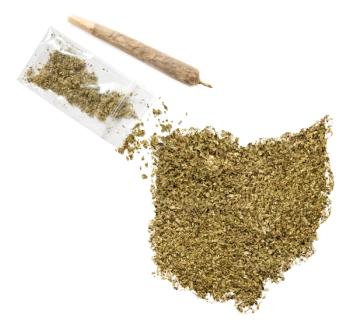
Delaware’s cannabis industry: A secret shopper investigation finds mislabeling, contamination, and public health risks among gaps in compliance
A "Secret Shopper" investigation conducted by Our Delaware and the National Clinical Directors Consortium revealed alarming compliance issues in Delaware's cannabis industry. The study discovered instances of mislabeling, product contamination, and the presence of synthetic cannabinoids in cannabis products. The findings highlighted the necessity for better regulation, accurate labeling, and public health protection.
The cannabis industry faces several challenges. Some of those issues being mislabeling and product contamination. Our Delaware and the National Clinical Director Consortium investigated into these challenges through a “Secret Shopper” program where they visited two dozen stores in the Wilmington, Dover, and Smyrna areas (1). Their report mentioned that (1), “The team found countless cannabis products being pulled right out of jars and placed into bags without labels or repackaged right in front of our shoppers. Most locations are openly selling weed on their checkout counters and only two locations asked for an ID, and one even offered other drugs.”
According to Our Delaware (1), 30 products were tested and results showed inaccuracies. They discovered that 80% of the samples were weed which made them ineligible in compliancy with the farm bill. The 30 products sampled varied from vapes, flower, and edibles. Of the products tested, a large quantity tested for harmful contaminants. They are also harmful due to inaccurate dosing, as well as unknown synthetic cannabinoids. The report found that 23% of the samples contained harmful contaminants, while 63.3% were discovered to have synthetic converted cannabinoids (1,2). As mentioned in the report, “Only 19 products have labels, with 100% of them having label claim issues ranging from inaccurate dosing or potency, not listing the actual cannabinoids contained in the product, or inaccurately claiming the product was under 0.3% THC. Many of the products lack warning statements of any kind,” (1).
Through this “Secret Shopper” program, the edible products caused concern via their packaging because they were packaged to appear similar to candy and snack products. This has also been seen with Delta-8 THC brands (3). The US Food and Drug Administration (FDA) and the Federal Trade Commission (FTC) had to get involved by sending several companies cease-and-desist letters due to the products mirroring other popular brand products. In their letters, they mentioned (3), “...the risks that may be presented to children as these delta-8 THC products imitate non-THC-containing food products that both adults and children enjoy. By producing an imitating product, it could mislead children to consume the products and experience an unwarranted health risk.” With this packaging, cannabis products may fall into the wrong hands of a child and could pose harm.
Founder and President of the National Clinical Directors Consortium, Nurse Laura Barrett, MBA BSN RN (1,4), worries about the impact these cannabis products, which are unregulated, are having on the state of Delaware. “The rapid spread of these grey products puts the health and safety of Delaware residents at risk,” Nurse Laura told Our Delaware (1). She added that, “Cannabis products sold to adults must be trusted and tested to protect our communities and our children, especially as safe, regulated cannabis products are essential for treating medical cannabis patients and in an adult-use market.”
In the state of Delaware, recreational cannabis is legal to be purchased by individuals aged 21 and older but, there aren’t any dispensaries that are legally allowed to sell cannabis products (1). Our Delaware’s and National Clinical Directors Consortium’s “Secret Shopper” program has highlighted the need for further testing, proper labeling, and shown that the cannabis industry still has room to grow.
References
- Full of weeds
https://www.ourdelaware.org/fullofweeds (accessed Sep 13, 2024). - Lab report: Secret shopper campaign
https://www.ourdelaware.org/labreportsecretshoppercampaign (accessed Sep 13, 2024). - Colli, M. Delta-8 THC brands warned over child-friendly packaging by FDA and FTC
https://www.cannabissciencetech.com/view/delta-8-thc-brands-warned-over-child-friendly-packaging-by-fda-and-ftc (accessed Sep 13, 2024). - About
https://www.asknurselaura.com/about-nurse-laura (accessed Sep 13, 2024).
Newsletter
Unlock the latest breakthroughs in cannabis science—subscribe now to get expert insights, research, and industry updates delivered to your inbox.





